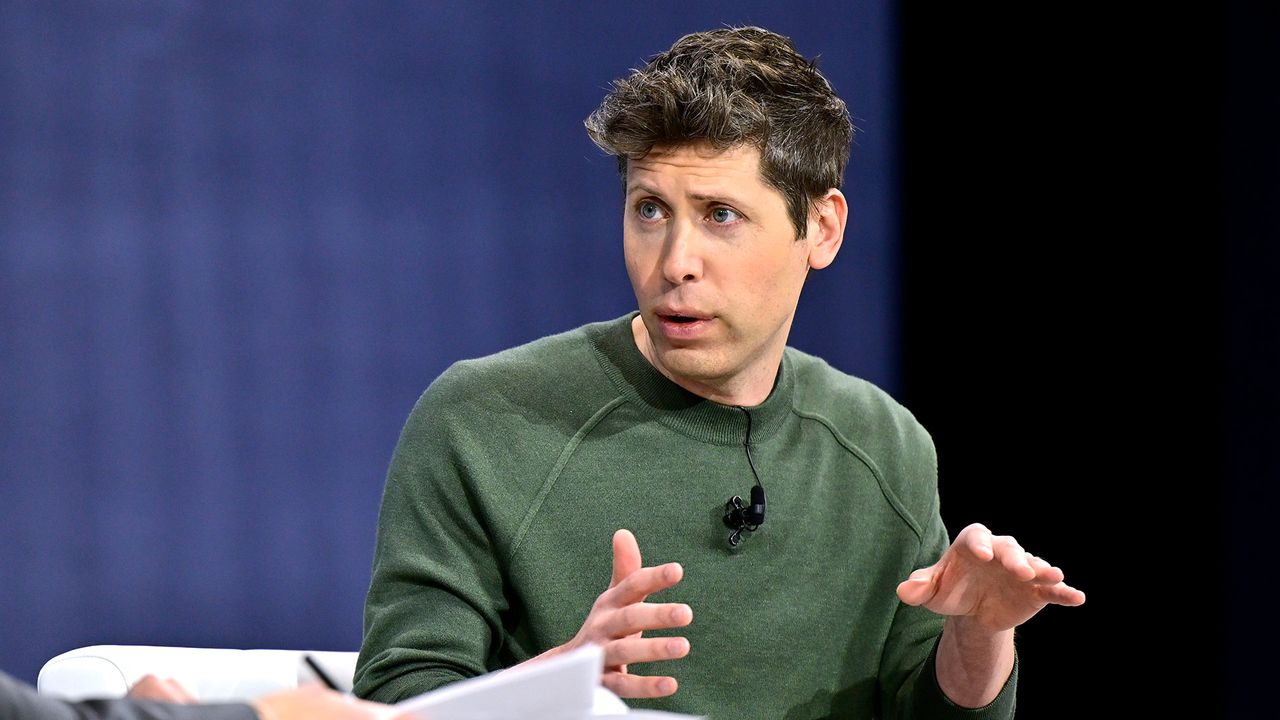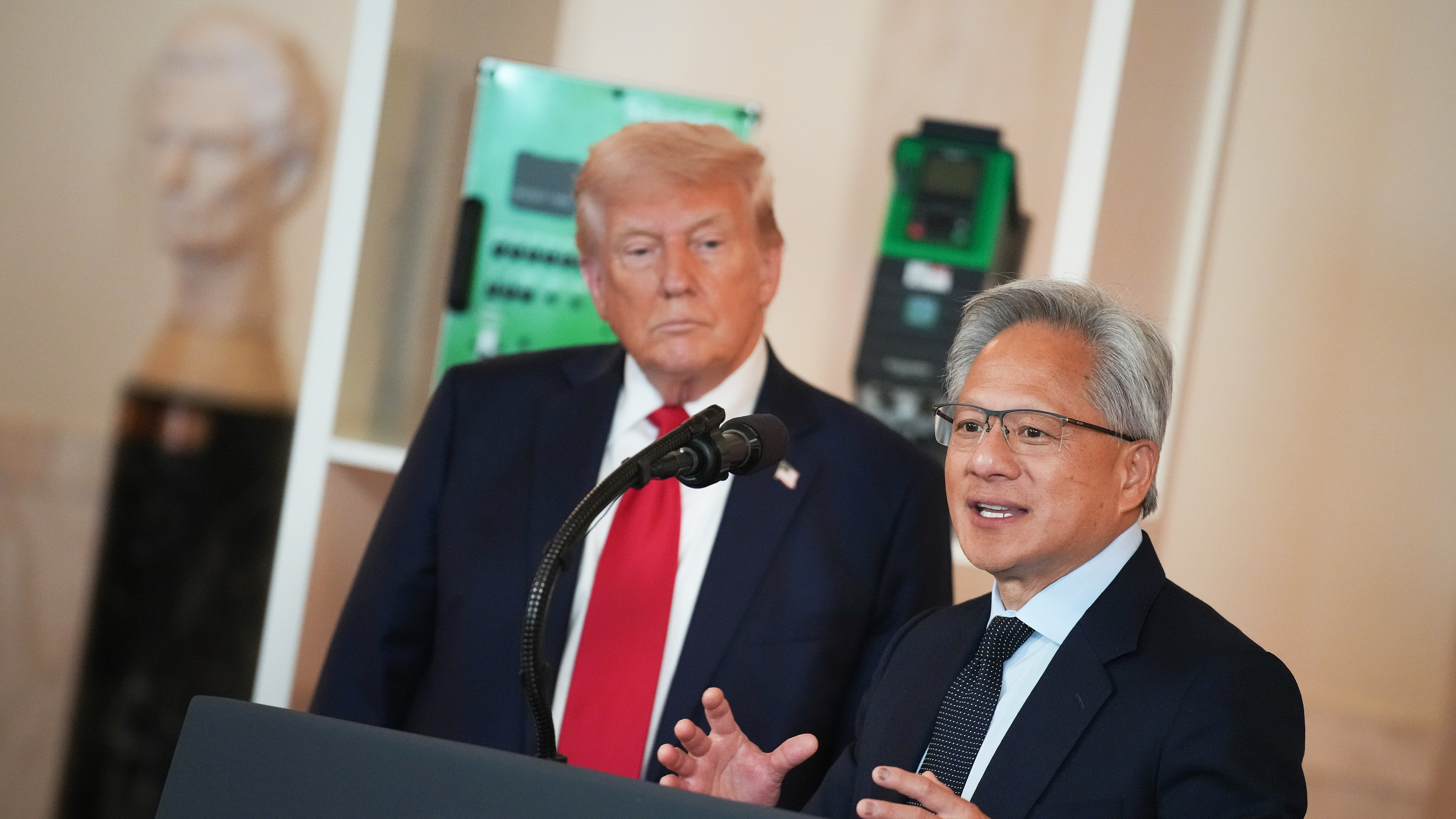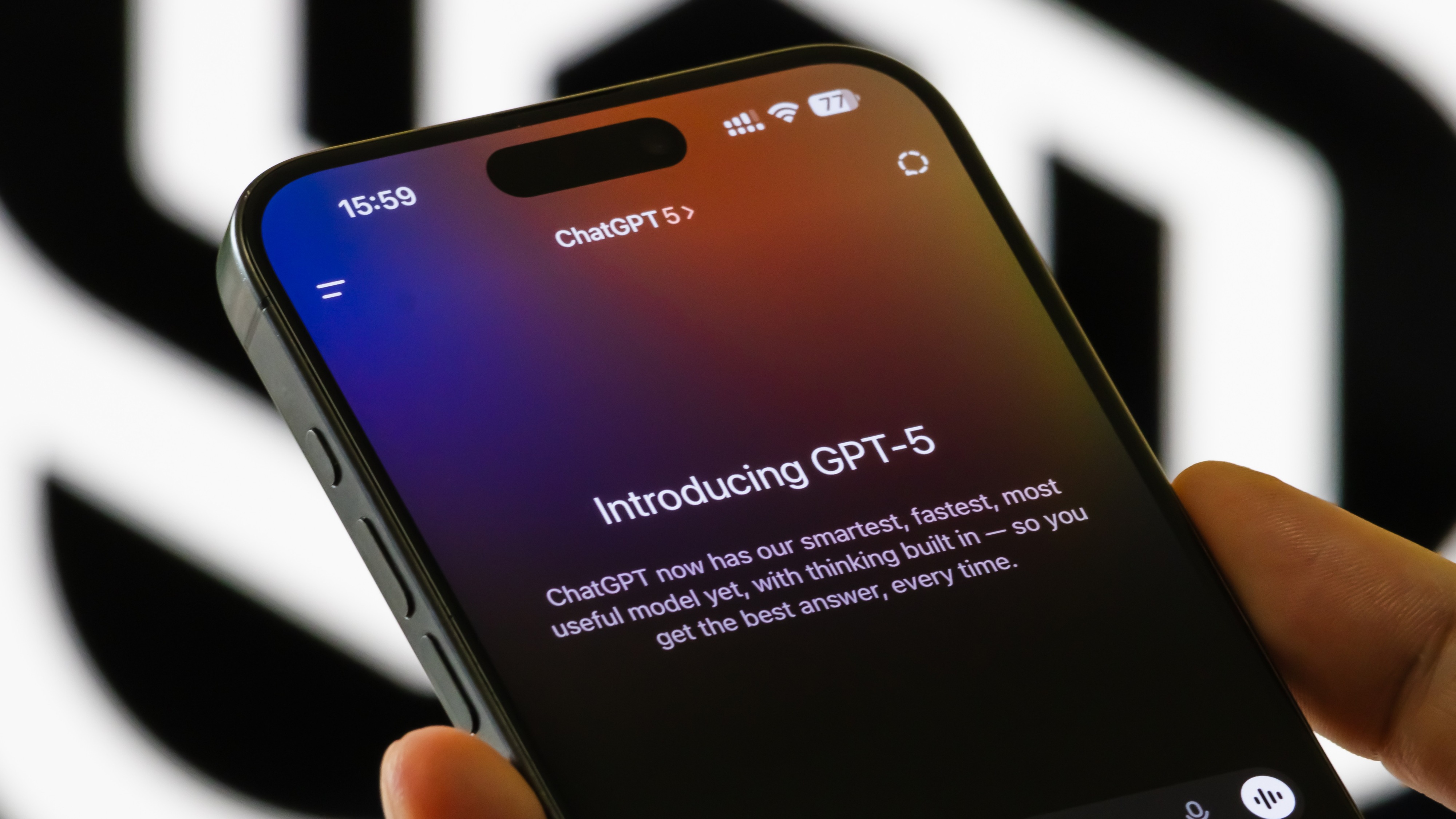
The United States and China are currently leading the world when it comes to AI supremacy, and the battle for first place — which is held now by the US — is surely only getting started.
At the forefront of this AI boom in the US are firms like OpenAI (creator of ChatGPT), Meta, Alphabet (the parent company of Google), Microsoft, and NVIDIA, which was the first company to surpass a $4 trillion valuation. In China, it's firms like Baidu, Alibaba, Tencent, and ByteDance that are notably leading the effort to catch up to the US.
In an interview with CNBC published August 18, OpenAI CEO Sam Altman warned that China's AI progress is being underestimated by the US. Worse, he doesn't believe that export controls are the solution to China's progress, noting that the AI race runs far deeper than who's currently ahead in the standings.
These comments come after a flurry of reports surrounding export controls on AI hardware, notably NVIDIA's H20 AI GPUs that are so sought after by Chinese firms.
There’s inference capacity, where China probably can build faster. There’s research, there’s product; a lot of layers to the whole thing. I don’t think it’ll be as simple as: Is the U.S. or China ahead?
OpenAI CEO Sam Altman, speaking to CNBC
For a bit of backstory, the US government banned the export of NVIDIA H20 chips in April 2025. It reversed its decision in July after NVIDIA CEO Jensen Huang visited the White House and was said to have reached a deal with President Trump regarding new export licenses for the AI hardware in question.
Shortly after, NVIDIA said it would need 300,000 H20 AI GPUs from TSMC to meet China's demand, and that was on top of the 600,000 to 700,000 stockpiled chips awaiting a buyer.
On August 10, it was reported that both NVIDIA and AMD had agreed to pay the US government 15% of the revenue generated from the sales of specific AI chips — the NVIDIA H20 and the AMD MI308 — to China, in exchange for the proper export licenses required for the sales.
While all this was happening, security exports from both countries raised concerns. On the US side, officials don't want to supply China with AI chips that could help bolster their military or help gain traction in the overall AI race.
On China's side, officials are concerned about backdoors or spyware baked into the hardware, which led NVIDIA's Chief Security Officer to publish an article titled "No Backdoors. No Kill Switches. No Spyware."
Sam Altman isn't the first CEO of a major AI firm to express doubts about export control

Part of NVIDIA CEO Jensen Huang's argument in favor of allowing the sale of H20 AI GPUs to China was that export controls aren't the answer to the AI race.
He noted that allowing non-American AI chips to become the global standard would be "a grave mistake" and would ultimately cause the demanding Chinese market to rely on domestic firms like Huawei.
Sam Altman, in his interview with CNBC, expresses a similar understanding.
You can export-control one thing, but maybe not the right thing… maybe people build fabs or find other workarounds. [...] I'd love an easy solution. But my instinct is: That's hard.
OpenAI CEO Sam Altman, speaking to CNBC
Altman could be referring to the massive black market AI chip trade when he mentions "other workarounds."
According to a report from Financial Times, it's believed that Chinese companies smuggled roughly $1 billion worth of NVIDIA's AI chips into the country in the first three months following President Trump's outright export ban on the H20 GPU in April.
Adding to the pile, Gamers Nexus, which hasn't been shy about calling out NVIDIA's business decisions in the past, recently published a 3.5-hour investigative exposé aimed at China's GPU black market.
This all comes as Chinese officials are explicitly warning AI firms against the use of NVIDIA's H20 GPUs in the name of national security. While there's not yet an outright ban on NVIDIA's hardware, it's increasingly becoming more of a faux pas for Chinese firms not to use domestic options.
Those domestic options, while currently not as potent as NVIDIA's hardware, could catch up. Either that, or China will brute-force its way to supremacy using Huawei AI clusters, as outlined by Tom's Hardware.
China is influencing OpenAI's release schedule

OpenAI released its latest GPT-5 model into the wild on August 7, and the backlash it received hogged a lot of the spotlight. Just days before the GPT-5 launch, OpenAI released two open-weight AI models: gpt-oss-120b and gpt-oss-20b.
These were the first open-source options from the company since 2019, designed to offer chain-of-thought reasoning with superior efficiency and customization.
What influenced OpenAI's decision to release these open models? Sam Altman explains:
It was clear that if we didn’t do it, the world was gonna head to be mostly built on Chinese open source models. That was a factor in our decision, for sure. Wasn’t the only one, but that loomed large.
OpenAI CEO Sam Altman, speaking to CNBC
Will export controls curb China's AI progress? Or will it instead harm US firms supplying the hardware? Let me know your thoughts in the comments section below!







